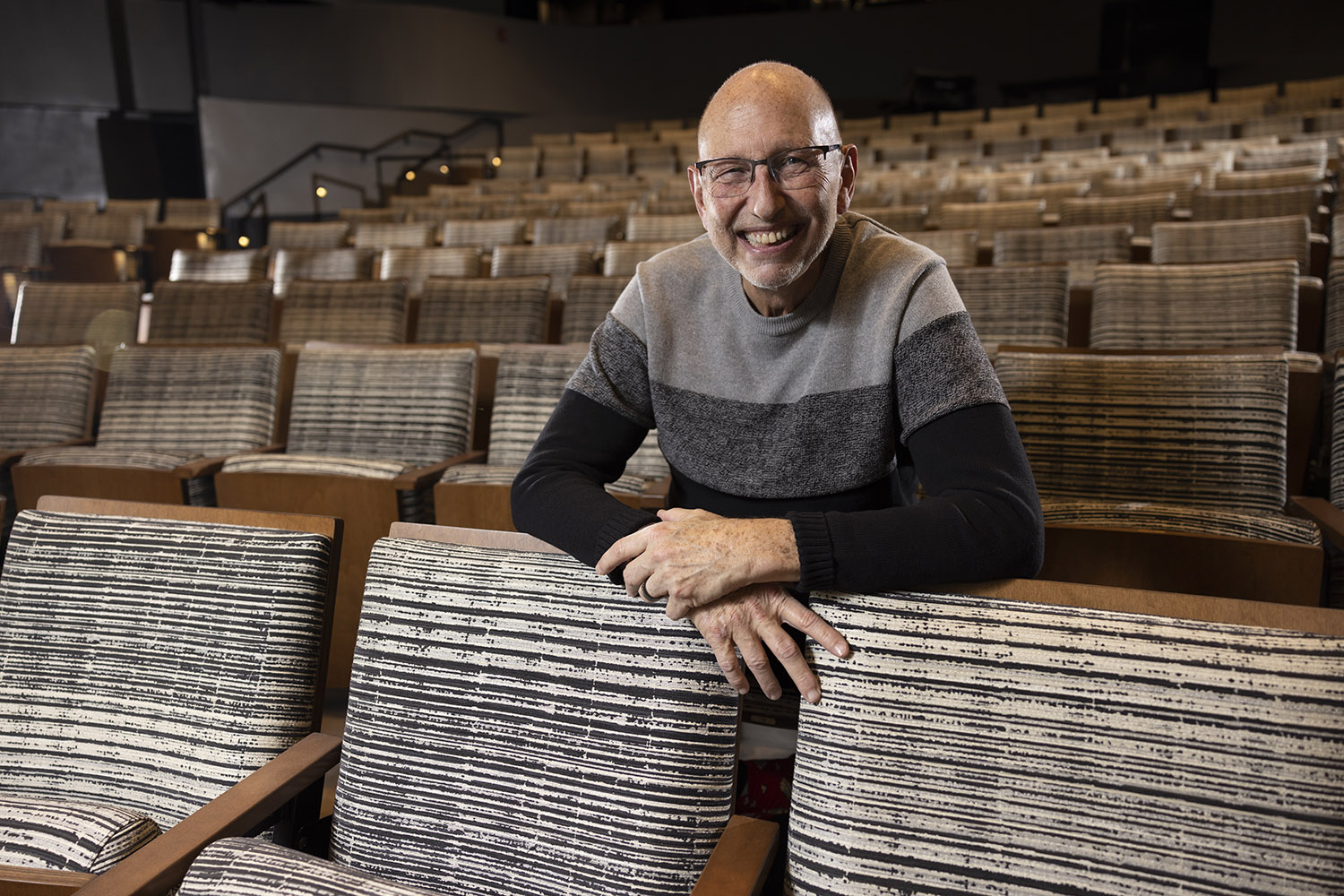
This newsletter marks an anniversary of sorts. It was almost a year ago that the pandemic struck. Students took off for Spring Break, many not to return to campus. Our once-densely populated new building emptied, and we made the transition to online education. And all our student works that had been well into rehearsals, such as Guys and Dolls, student theses, and RROAPS/RRADS, were canceled, disappointing the many people who had work so hard on bringing them to fruition.
Throughout the first months of COVID, we faced myriad challenges like so many universities around the country. The virus set in motion a series of compromises and potential losses, but I am proud to say, our community confronted each obstacle with imagination, all the while putting the education and safety of our student body first.
It's easy to think about all of the disappointments we encountered, especially considering the fact that theatre and dance are collaborative endeavors, thriving off of personal interaction, conversation, and rehearsal. As one graduate student pursuing her MA, Grace Wohlschlegel, put it, "Theatre is inherently collaborative, and community is at the heart of what we do and why we do it. So, to lose the ability to commune and create with our fellow artists was not only disappointing, but tragic."
While we struggled sometimes in our efforts to maintain community when facing isolation, we adapted to pandemic regulations. The university did a massive overhaul, all the while again making safety the first consideration, and we did our best to rise to each occasion with grace, efficacy, and creative problem solving. Following the university and college's good lead and working under their careful guidelines, we found ourselves productive.
We had to envision a new way of communicating with one another, teaching performance, design, dance, and even fight choreography online. Even more challenging, as fall 2020 began, our season became virtual, forcing us to reconsider how best to serve the needs of students while striving to make art in a host of experimental ways.
The limitations caused by COVID inspired rather than defeated our community. The reimagined online season challenged directors, actors, designers, technicians, and production staff to learn new technologies that allowed us to share our art using cameras, editing equipment, and green screens, all the while making sure the safety of our students, faculty, and staff was paramount. The School owes a huge debt of gratitude to the students and production staff who rose boldly to the challenges, spending many additional hours learning new software, researching new practices, and utilizing those new skills to support these productions. Adversity can bring out the best in artists, and in so many cases, our students, faculty, and staff explored exciting means by which we could continue to move forward.
As a testament to that hard work, many students excelled this year at the Kennedy Center American College Theatre Festival, which we attend each February, to share our talents in acting, arts administration, criticism, design, directing, dramaturgy, and playwriting with national artists and colleagues in our five-state region. In my nine years here, we have never done as well as we did this year with recognitions and awards for our students and faculty. This speaks not only to our community's resilience, but also to the quality of the creative solutions that impressed the respondents.
Here's a complete list of students, faculty members, and staff recognized for their contributions this year. Those at the top are invited to present their work at the national festival in April, a major achievement.
I could not be prouder of our community, exemplified by these students, for finding the means to share their art and experience under dire circumstances: to reframe their realities into the positive. As Grace, the graduate student quoted above, expressed, while learning film and editing was a challenge, "it ultimately improved my skillset and abilities as a theatre artist."
If anything, this last year has inspired new ways of thinking, communicating, and performing—and, educationally, we are all the better for it. As we happily embrace the construction of part two of our theatre and dance complex, we do it with optimism, hoping that we can return to face-to-face education/rehearsal, but stronger—knowing that, no matter the circumstances, the show does indeed go on.
